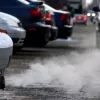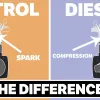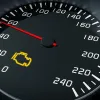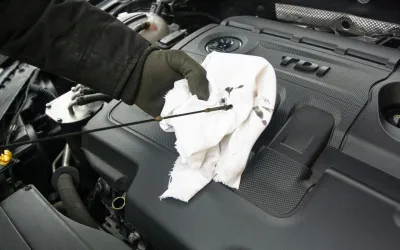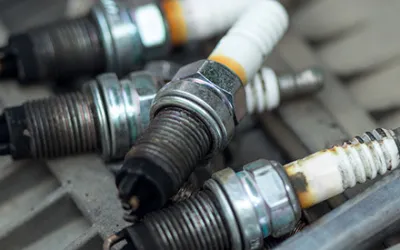In this article we will talk about the power losses of both gasoline and diesel engines. Perhaps many of you have encountered this problem, in which the engine of your car suddenly stops firing properly. Also over time, after many km, engines begin to lose power due to wear of components and carbon deposits. In this article you will find out why the engine has power losses and little tricks on how you can bring its power back.
{{{ad-code}}}
First of all, the most common cause of a decrease in the power of an engine is the poor quality of the fuel. A recent study showed that due to poor quality fuel you can lose around 5-10 hp. (yes, they tested this on a torque booth that confirmed this).
Another fairly common cause is that of clogged filters / pipes / galleries. After talking to several people who own car services, I came to the conclusion that many cars are not serviced properly. There are cars that come with the air filter unchanged for 10 years.
{{{ad-code}}}
The air filter gets clogged over time, which leads to much poorer air circulation. The engine starts to take in air into the intake, which leads to a decrease in power. Also the same thing applies to the fuel filter, there are cars that come with the original fuel filter
There were cases when I found a black felt in the fuel filter (it looks like fuel oil) and the fuel barely circulates through the filter. Since the number of diesel cars in the country has multiplied (especially the newest ones that are equipped with dpf and egr), more and more come with the intake manifold and the EGR very clogged.
I’ve encountered cars , diesel, which had such a clogged intake with calamine, that literally air passed through the engine through a channel as thick as a finger. Diesel cars that run 95% of the time only in the city, bar to bar, at low speeds, where self-cleaning is not possible. Likewise in the case of DPFs, cars come with 90-95% clogged DPF, the car no longer wants to pull, enters safe mode or gives continuous regeneration.
{{{ad-code}}}
For these reasons the only solution is to take down the EGR or DPF and clean it “mechanically” with a special solution and water under pressure. At least for diesel engines, calamine deposits are much higher compared to a gasoline engine. If a diesel car is driven mainly in the city, at low speeds, it will accumulate very large deposits of calamine on valves, piston heads, galleries, etc.

Another cause of the loss of power for a gas car would be that some drivers forget to change the spark plugs, which in time are “tired” and no longer efficient, the spark no longer has “power” and the combustion is incomplete, which inevitably causes decreased power.
There are also cases in which some sensors no longer read certain parameters correctly, and the ECU no longer controls the motor correctly, which leads to a considerable decrease in power.
If the engine is also not adjusted properly, it will not develop all its power. For example, if the timing is out of sync, the engine will not work properly, or will not develop all of its power. Also if the feed is not adjusted correctly, the engine will be much slower.
{{{ad-code}}}
Another big problem that can lead to considerable power outages could be very high turbine wear. The turbine consists of 2 parts, one “hot” (which is engaged by the exhaust) and another “cold”. To create pressure in the intake manifold, the vortex wheel inside the cold part has a very low tolerance to be able to form pressure. So if it deteriorates even a little bit, it starts to lose pressure and no longer makes the correct pressure, implicitly the engine power will decrease. Also, if the variable geometry of the turbine is blocked, or does not slide properly, then it will no longer work in the parameters.
The same applies to the injection system, if it has wear and does not inject the correct amount of fuel, at the right time then the engine will not develop the same power. Over time, the injector nozzles wear out or become clogged with calamine and no longer properly spray the fuel. This leads to incomplete combustion and calamine deposits occur.
{{{ad-code}}}
Engine wear is also a fairly common problem, especially with gasoline engines. What does engine wear mean? After a number of km certain engine components start to wear quite a bit, for example the segments wear out over time, especially if you have a sportier driving style and forget to change the oil in time, then the segments will wear out quite a bit fast. The same happens with the valve seals, which wear out very much if the oil is of a lower quality and you approach a sporty approach. With the wear of the valve seals, blue smoke and oil consumption will also appear, because the oil will enter the combustion chamber next to these gaskets.
In general, our advice is that if you notice a loss of power, it is best to visit a specialized service, which will make a computerized diagnosis, check the operating parameters of the engine and ensure that there is no electrical problem (sensors to work properly).
{{{ad-code}}}
A funny coincidence was when a driver came to the service, with this problem “the car has no power”. After several mechanics looked at the engine and found nothing, the one who performed the computerized diagnosis realized that the parking brake was applied but the warning light was not on board. All the while, this driver was driving with the handbrake on, believing that the car was not pulling properly.
Finding why the engine does not work as before is quite complicated and it would be best to always call a specialized service, not to treat this problem lightly or you will aggravate the situation even more.
{{{ad-code}}}



